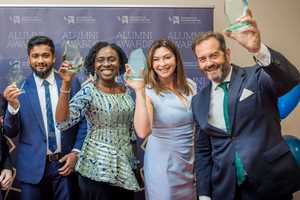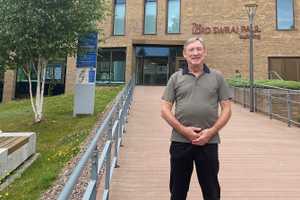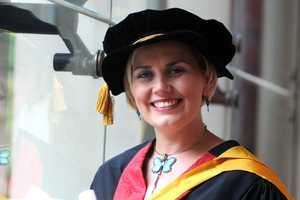When you think of students on science-based degrees, it doesn’t always immediately spring to mind that they might become entrepreneurs aiming to better the world. However, Mattia Parati and Olivia Simpson are two graduates who have forged both an impressive scientific reputation and great business success.
Their company, SymbioTex, is currently celebrating a proposed transition with a larger company, FlexSea, but every success story has to start somewhere. Theirs began at – and continues to involve – the University of Wolverhampton.
Mattia Parati came to the UK in 2016 from Italy to study a Bachelor’s degree in biotechnology. He was particularly interested in the programme offered at Wolverhampton due to the placement programmes, and so in the summer of his first year he did a “phenomenal” Erasmus+ placement in Spain, working on oil analysis.
A year-long placement in his second year with InnoCore Pharmaceuticals in the Netherlands followed, focusing on biodegradable, implantable drug delivery systems.
Mattia loved the work and “learned a ton of stuff”, saying: “It was an incredible international experience which was very hands-on and at the cutting edge of technology.”
“My opinion was important,” Mattia adds. “Everyone in the company was well regarded and respected. There was an understanding that the different backgrounds and opinions were valuable and you’re encouraged to bring your ideas to the table. Working there allowed me to gain critical practical and theoretical experience on next-generation biodegradable drug delivery systems.”
Working on an urgent project cemented Mattia’s interest in working with biodegradable polymers – useful substances that break down after their use into natural byproducts, benefiting the environment. Fortunately, when Mattia returned to the UK, having also been awarded the Microbiology Society Prize, his professor, Iza Radecka, a pioneer in the field of biopolymers, suggested he work on the subject for his project.
He did so, luckily finishing his practical work one week before Covid-19 caused the national lockdown. Having met Olivia only two weeks before, it was the beginning of a wonderful personal and professional partnership, with them setting up their company, SymbioTex, together.
Meanwhile, Olivia Simpson had originally planned to study medicine following her A-levels, but she didn’t get the grades she needed. Having turned down offers at other universities for other biological subjects to focus on medicine, Olivia decided to explore her options at Wolverhampton through Clearing. She’d discovered she had an entrepreneurial spirit that she wanted to explore further, and continuing to pursue medicine wouldn’t have allowed her to do this.
She describes enrolling on the Bachelor’s in Medical Science and Clinical Practice: “It was the best decision I took. I loved the course and was working at the Students’ Union and gym too. I set up health checks while there with non-invasive tests such as blood pressure, body mass, muscle density – and worked out individual plans for participants: free gym passes, referrals to occupational health or GPs if required. Getting that project management experience turned out to be both enjoyable and incredibly important to our business.”
While studying, Olivia applied for a health coordinator position at university in conjunction with the council. Managing 56 volunteers and overseeing various health and wellbeing events on campus and in the city, such as a bowel cancer or sexual violence awareness campaigns, Olivia’s management talent shone through. Despite being offered a further year’s contract once she completed her degree, SymbioTex was beginning to grow and need her time, so it became her focus.
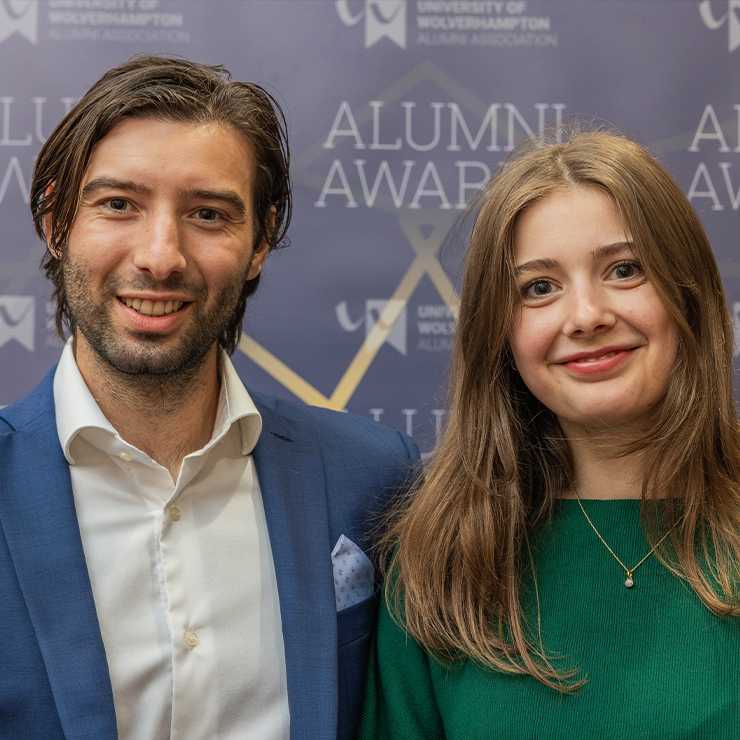
Mattia had gained a one-year position at the university’s Science in Industry Research Centre (SIRC), which allowed him to study his PhD alongside acting as a consultant for small businesses in the area. After a year, finishing his SIRC post, he spotted a gap in the market that had the potential to prove both profitable and hugely beneficial to the planet: taking specific biodegradable polymers and using their filaments for 3D printing.
With Olivia agreeing it was a great idea, they needed further research, and crucially, funding, to explore how to get to market, and in what form. For Olivia, there was one key area where their product could be used: in the medical industry and NHS.
Olivia had experienced a life-changing moment when she spent 12 weeks on placement in the NHS during her degree. Like many, she was horrified by all the plastic medical waste in the operating theatres and hospitals, where each item is individually packaged and has to be medically sterile, and all the waste is sent to landfill or to be incinerated.
Getting that project management experience turned out to be both enjoyable and incredibly important to our business.
She said: "I realised quickly how much plastic waste there was in the medical sector and that only a small amount of waste was being recycled.
“There was a gap in the market for biodegradable products that don’t release harmful fumes when they have to be burned, or that can be put into the ground and break down naturally without causing harm to the environment.”
Olivia put her and Mattia’s knowledge and entrepreneurial spirit to work to help find a viable solution.
The hunt for funding and support continued. They secured a £10,000 grant awarded by the University’s Chancellor, Lord Paul, for entrepreneurship that contributed to funding their patent, and the Verizon and Unloc Young Entrepreneurs Competition provided a further £10,000 boost for the business for commercial pilots.
With their profile increasing, Olivia and Mattia got an offer from FlexSea, who liked their knowledge and experience of consultancy work. Mattia became chief scientific officer at FlexSea, combining his work with that of SymbioTex. Mattia was really keen on the idea of circularity – taking abundant material (like seaweed) to make other useful materials. In the meantime, Olivia ploughed on with research and development, profile-raising, and trade shows for SymbioTex business. With Mattia now chief scientific officer and Olivia chief operations officer jointly at FlexSea and SymbioTex, their unique product is being developed and refined. But as with all scientific endeavours, theirs takes time and investment.
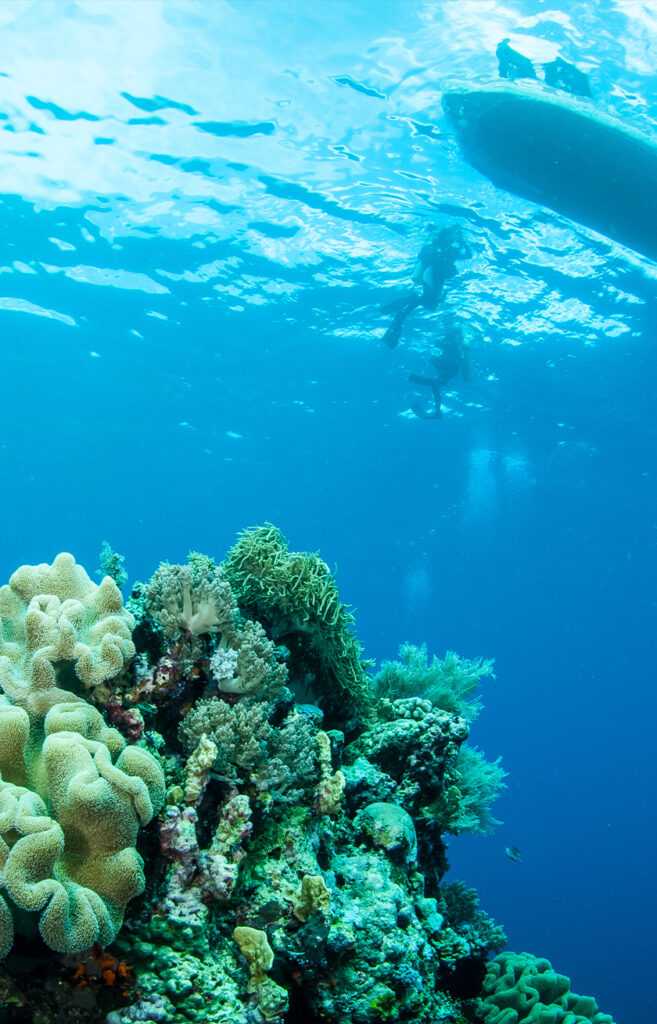
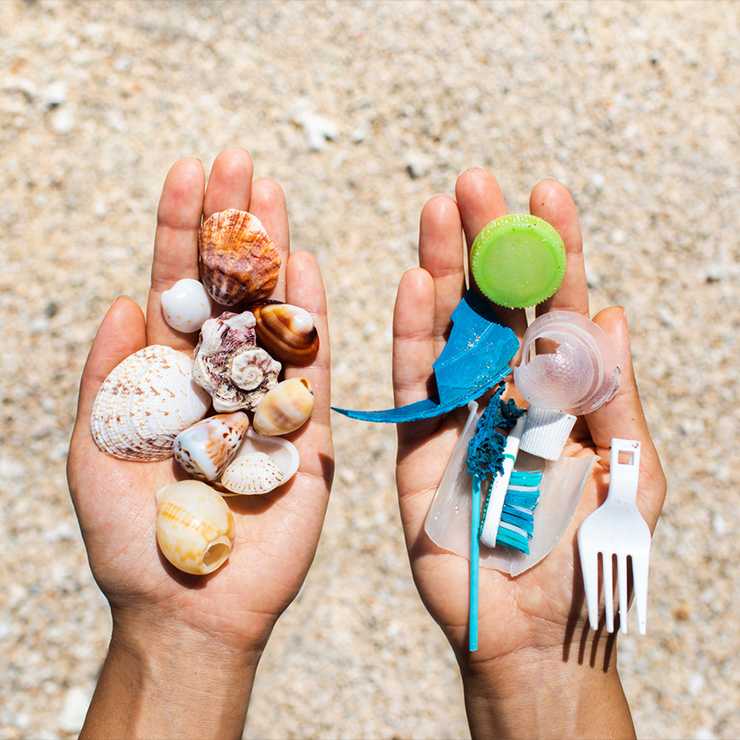
With his PhD focused on turning seaweed into biopolymers, Mattia explains: “The previous work I did with Professor Radecka shows that though there are limitations, bioplastics from petroleum are theoretically possible, but terribly expensive, as well as not currently sustainable. That’s why we’ve focused on creating fully sustainable bioplastics from seaweed.
“Our bioplastic is made in the UK, although the seaweed is from a sustainable infrastructure in Asia where it is already produced at scale. We’d love to use British brown seaweed, but it has a 6-month’s growth, 6-month dormant cycle, so we can only harvest half the time.
“We’re looking into possibilities of using brown seaweed from the UK, but we need to be really careful that in trying to displace the plastic problem, we don’t create another: namely the depletion of the seaweed in the UK coastline. It would be like damaging another Amazon rainforest!”
In the competitive commercial arena, Mattia and Olivia admit they’ve been tempted to move the company abroad, to Portugal for example, to increase output and decrease costs. However, the UK offers excellent funding and outstanding collaboration opportunities, and they’ve worked with over 40 different unis on their cutting-edge research.
Olivia argues that there’s a real interlinking between the science and what the market requires – there’s no point developing a material with no demand. However, the properties of the material also dictate what companies they target.
She says: “You’re not going to make a home-compostable material for the automotive industry, where you have to replace your bumper every year… but you are for food packaging, where it’s used for very little time.”
As far as Olivia is aware, they are currently the only company producing biodegradable bioplastics for the medical industry, and the future looks bright for this innovative young pair. Their work with FlexSea looks set to take them to even greater heights, and they’re certain that they will continue their relationship with the university for many years to come.
Olivia concludes: “Every role we’ve had at the university has given us opportunities. I’ve discovered my entrepreneurial spirit, but the environment – from the facilities and teaching to the amazing academics and support staff – has allowed me to thrive. We wouldn’t be where we are without the immeasurable help from Ray and the rest of the caretaking team. We’re so happy to continue working with the university.”
Accolades
- Great British Entrepreneur Award Winner (Sustainability) 2023
- Winner of London Tech Week 2023
- Young Entrepreneurs Challenge 2023
- Midlands Women in Tech 2023
Which seaweed?
Commercially grown varieties of red seaweed include species such as Eucheuma spinosum (used as a thickener, carrageenan, in food) or Gracilaria gracilis (used to make agar agar for petri dishes and in food).



